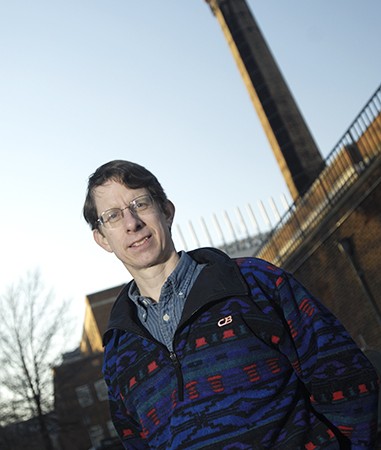A new interdisciplinary science team, led by experts from Yale and Johns Hopkins universities and funded by the Environmental Protection Agency, will study how power generation trends, climate change, and public policy interact to affect air quality. A key goal of this project is to trace how the resulting changes in air pollution may affect the health of people who live and work in the mid-Atlantic area.

Image caption: Benjamin Hobbs
To help unravel this environmental puzzle, the EPA has awarded a five-year, $10 million grant to establish a new Solutions for Energy, Air, Climate and Health Center, based at Yale and co-led by Johns Hopkins. The SEARCH Center includes prominent researchers from Johns Hopkins and eight other institutions.
Johns Hopkins alumna and Yale faculty member Michelle Bell will direct the new center. Benjamin Hobbs, director of the Environment, Energy, Sustainability and Health Institute (E?SHI) at Johns Hopkins, will co-direct. About $3 million of the new EPA grant will be channeled through E?SHI to support Johns Hopkins' interdisciplinary contribution to the research effort, Hobbs said, making this the institute's most ambitious endeavor since its launch in 2010.
The SEARCH Center will explore how different energy policy scenarios could affect public health in a particular region. For example, if market conditions cause a large number of motorists to switch to fuels that emit fewer pollutants, how would that impact the health of nearby people with respiratory ailments? If, at the same time, climate change leads to higher temperatures and therefore more use of air conditioning and more power consumption, how would that increase the risk of smog episodes?
The center plans to gather data by developing and deploying air pollution sensors—including designs that individuals can wear—to measure real-world air pollution throughout Baltimore.
"The quality of Baltimore's air is profoundly affected by the ways we use energy for our buildings, transportation, industry, and electricity," Hobbs said. "Since our country is in the middle of huge changes in how we use energy, so too will the sources and effects of air pollutants change."
To understand the impact of these changes and then advise policymakers on how to address them, the center will call on the expertise of researchers from a diverse range of fields, including public health, sensor development, biostatistics, climate science, and energy use projections. The goal is to predict as accurately as possible which developments are likely to increase or curb air pollution, and how soon and what kind of corrective action may be needed.
"[The center] is designed to have a high level of interdisciplinary collaboration," Bell said. "Our research will link policies and research questions that historically have been largely studied separately. Our overall aim is to provide scientific evidence that can inform more effective decision-making to improve public health.
"The more scientific evidence we can give of the consequences—especially for health but also other consequences—of different energy scenarios and policy scenarios, the more informed our decisions can be."
Posted in Health, Science+Technology
Tagged environmental science, sustainability, climate change, air pollution







